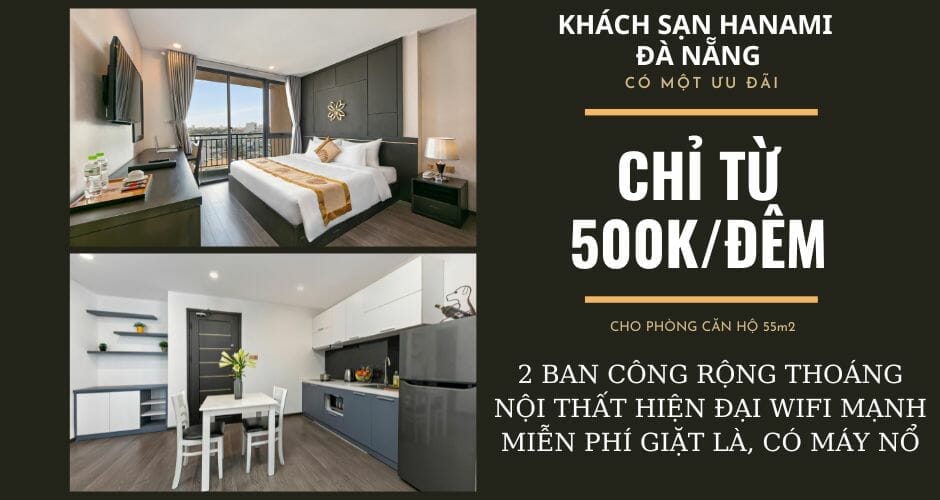The Internet is currently evolving and playing a significant role in everyone’s lives. Therefore, new and evolving trends emerge continually. Hotels must pick up on trends rapidly in order to attract customers. To keep up with trends and capture customer insights, the hotel website first needs constant updating.
If you have any queries concerning the factors that consumers care about, Hanami‘s article “6 factors affecting customers interest in the hotel website” would be helpful.
Website navigation
Any consumer wants to be able to easily and quickly book rooms and other hotel services on the internet. Thus, ensure that the booking can be made on the first page and is connected to a secure booking engine.

Avoid placing too many advertisements, deals, or promotions on the website’s home page. Customers will be confused if there are too many advertisements. Instead, when customers are trying to find a way to reserve a room or take advantage of a particular deal, you should lay out a clear path for them.
Customers are those who always desire a quick and easy approach to accessing a website. Make certain that bookings can be made directly from the hotel’s homepage and that they are linked to a fast and stable booking engine.
Fast access speed
Several surveys indicate that visitors typically browse websites for just three to five minutes before moving on to another. Therefore, make your website easier to use, make the front page visually appealing, and make sure it contains all the information you need to draw in and keep consumers.

Besides, you can’t possibly know what kind of device users will use to access your website. Hence, you require a high-quality website that is easy to access in order to see and utilize all types of electronic devices, particularly smartphones.
Integrate many different languages

Clients can travel anywhere in the world while using the hotel website. Thus, the hotel’s website must be multilingual in order to be translated into a wide range of languages. It should be translated into well-known languages like English, Chinese, etc. to boost user interaction with the website. To communicate with website visitors and make them feel valued and professional, staff members must speak multiple languages fluently.
Giving a specific price
Customers are buyers and they expect to be offered specific prices. According to a survey by Postcode Anywhere, up to 55% of customers say hiding prices is one of the top reasons for no longer booking hotels.

Customers will lose trust if the hotel’s website does not provide reliable and legal terms, conditions, cancellation costs, and so on.
Let’s continually improve the hotel website and the business plans for the hotel. A booking engine that gives visitors a quick and simple booking experience is crucial, but so are your website’s appearance, speed, and usability. Make sure your hotel is fully utilizing the potential of this market given that there are about 200 million users of Internet booking services, and that figure is increasing annually.
Understanding the customer’s insight
Customer insight is the unspoken truth; these are the ideas that drive customers’ behavior from deep within their minds. The more the hotel understands the psychology of customers, the easier it will be to control the behavior of customers coming to the hotel.

When it comes to booking, the message and image are the two types of content that draw customers to booking. Thus, the hotel’s brand, services, and goods need to be promoted on the customer’s website. Invest in professional, high-quality images to emphasize your hotel’s strengths.
Provide visitors with fantastic images of the amenities, services, and room types and describe their features. The ROI Management Module’s research has revealed that the photo gallery page of the website obtains an average of 97.6% of clicks from visitors who make an online reservation.
Due to the fact that not all visitors are familiar with the area, customers also want to know the hotel’s location. Make it clear to visitors how close the hotel is to the city’s best restaurants, stores, and sights. Hotels should concentrate on providing the amenities that visitors demand throughout their stay, according to a poll conducted by Hotels.com.
Interacting with customers
Customers frequently use review services on OTAs and meta search engines, making them essential in the modern travel and hospitality industries. Hotels should take advantage of this trend. Hotels may boost social proof, achieve clear transparency, and even better understand what needs to be improved in the hotel by allowing customers to share their experiences and opinions.

In addition, a lot of visitors find it inconvenient to check the hotel’s website and Facebook page for room information but still need to call the hotel to make a reservation and wait for a confirmation. Several hotels have an online booking system built into their website, but there is no online payment option available; instead, only the transfer method is used, which is only appropriate for domestic travelers. As a result, the majority of international guests frequently select to book through OTA channels, costing the hotel a commission.
A hotel’s website is a crucial tool for boosting business and building brand recognition. The hotel should therefore make an investment in and maintain its website. I hope the article on the 6 factors affecting customers interest in the hotel website will provide you with additional interesting information. Stay tuned for more updates.
Về tác giả:
Chúng tôi không kiếm lợi nhuận từ nội dung đăng tải. Các bài viết đều được biên soạn và kiểm duyệt bởi đội ngũ tác giả và biên tập viên của công ty TNHH du lịch khách sạn Hana. Xem thêm: về tác giả




